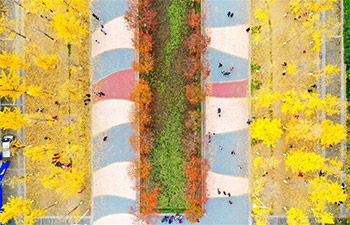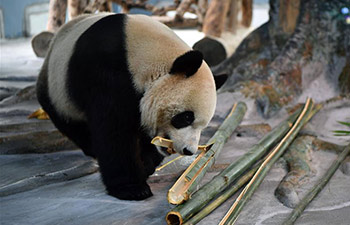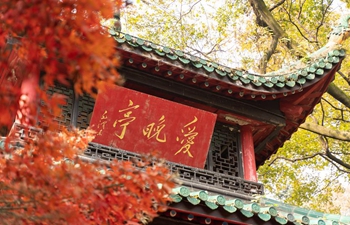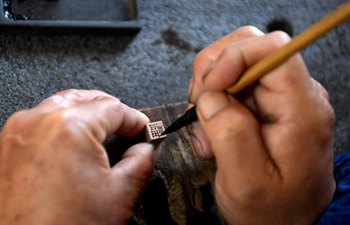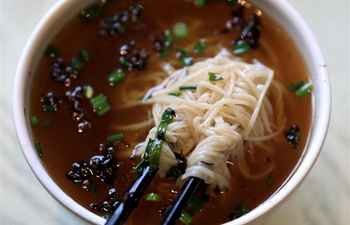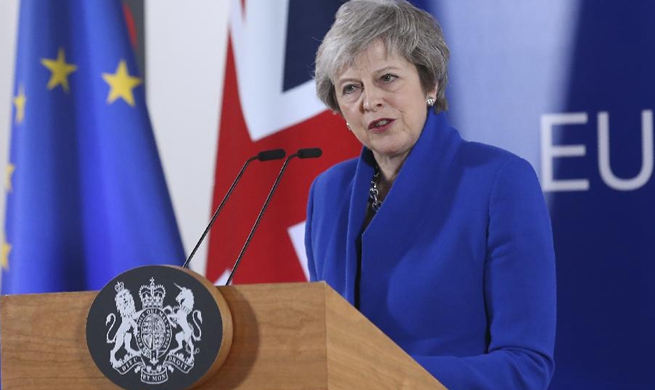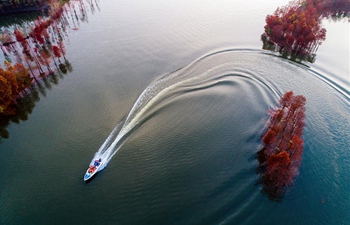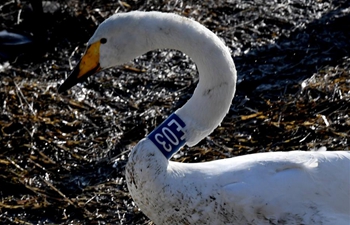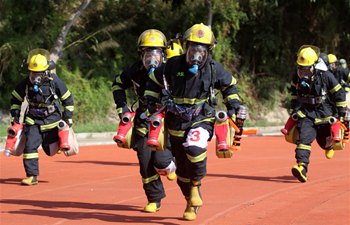by Raul Menchaca
HAVANA, Nov. 25 (Xinhua) -- Cuba on Sunday marked the second anniversary of the death of the legendary revolutionary leader Fidel Castro, as Cuban President Miguel Diaz-Canel joined youths at a vigil and Cuban media published articles, among others.
Although there were no state-sponsored events planned, media outlets published articles over the weekend on different aspects of Castro's life.
The Union of Young Communists held an all-night vigil Saturday on the steps of the University of Havana, to mark Castro's contributions to forging a more just society through equal access to health, education, work and other basic rights.
Diaz-Canel attended the vigil, which drew hundreds of people, mainly students, who related Castro's accomplishments through songs and poetry.
"Fidel planned and organized the Revolution, he led it, he fought and triumphed; he rescued the dignity of the country and forged a work of emancipation without precedent. He resolutely confronted the imperialism, he grew up with his people and for many reasons he will always be with us," the Cuban president said via Twitter, in the first of a series of posts remembering his predecessor and mentor.
Over the past 24 months, Cuba has undergone dramatic changes, including Fidel's brother and successor Raul Castro's handover of the presidency to his successor Diaz-Canel.
Raul Castro continues to serve as the first secretary of the Central Committee of the Communist Party of Cuba, working closely with Diaz-Canel on major issues.
Fidel Castro's admirers keep displaying photos or posters of the late leader, but no statues have been erected in his honor, nor streets and stadiums named after him, in keeping with his last wish.
That request became law in December 2016, when the National Assembly voted unanimously to ban the use of Fidel Castro "to name institutions, plazas, parks, avenues, streets and other public places, as well as any type of decoration, recognition or honorary title."
Instead, the government issued a presidential decree calling for "a working group to preserve and spread the memory of the historical leader of the revolution."
The group, made up of some 30 experts in different fields and representatives of various organizations, is charged with establishing a study center to preserve and disseminate Castro's legacy for future generations.
The center aims to compile and safeguard all the documents and information generated by Castro over the years, and is expected to open by the end of next year.
In the meantime, several universities have done something similar. The University of Havana in April created an honorary chair to "study his thoughts and work," while the University of Oriente, in the eastern city of Santiago de Cuba, established a similar position to develop the critical thinking and study of the former president.
Castro's ashes rest at the Santa Ifigenia Cemetery in Santiago de Cuba, inside a large granite rock inscribed simply with the word "Fidel."
The monolith, standing next to a crypt that contains the remains of national hero Jose Marti, has become a place of pilgrimage for Cubans and foreigners alike.
